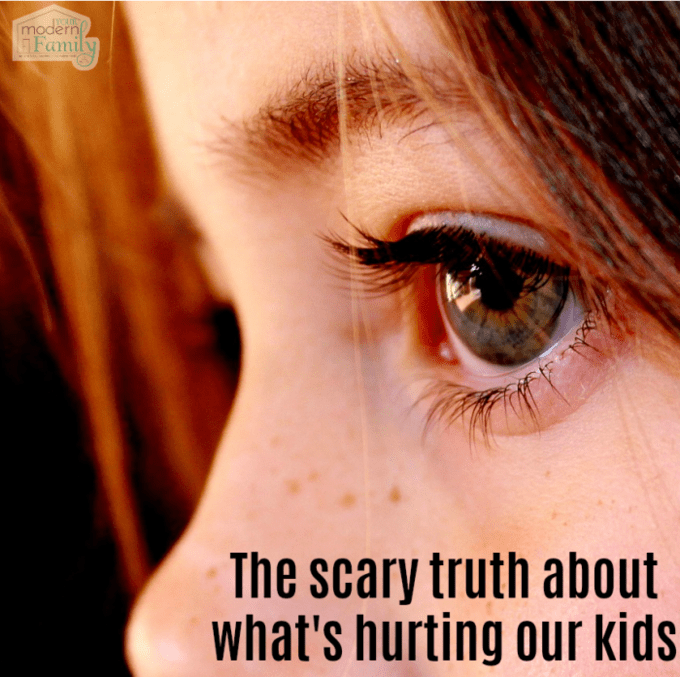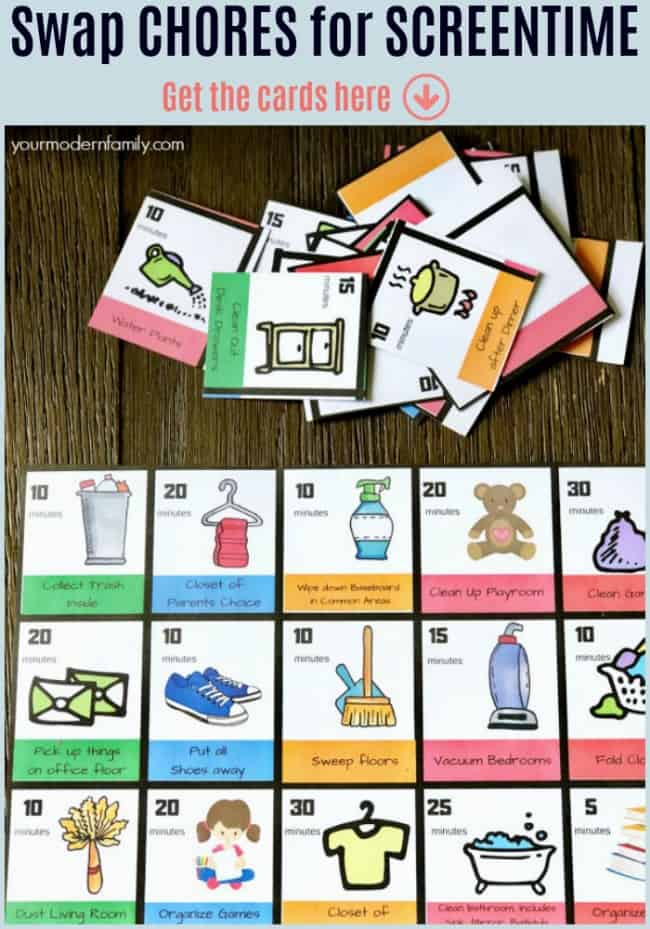This post may contain affiliate links. Please read our disclosure policy.
THINGS NO ONE TELLS YOU ABOUT PARENTING A TEENAGE BOY
Raising our four children, including raising teenage sons, is the joy of my life. We have three boys and one little girl. While there are things that you need to know about raising teenage girls, today we are talking about raising teenage sons. The teenage years have been my favorite ones – a way to connect with our kids, talk to them, listen to them, and just watch them grow.
While I love being a Boy Mom to our sons, it has opened my eyes to many things. There is a big difference between young kids, tween boys (and girls) & teens.
As a teacher, child development therapist, and mother, I can say that the teenage years are wonderful and scary all at the same time.
In fact, one of my favorite parts of the day (and also the one that is the hardest for me because I’m exhausted) is when I stay up late to talk to our older boys before they go to bed.
Those late-night chats are the best ones (we started these bedtime talks when they were young), even if it means that my dark circles are a little darker the next day. Zzzzzz… but worth every minute! It’s the best piece of parenting advice I could ever give – use your time wisely. Have the late-night chats. It’s worth it.
THINGS NO ONE TELLS YOU ABOUT PARENTING TEEN SONS…
Many of my friends & readers are parents to teenagers… many of them are parents to teen sons. Last week, we were talking about the things that no one tells you about parenting a teenage boy.
We gathered up that advice about raising a teen boy (thanks to a lot of boys’ moms!) and used it to build today’s list of the things that no one tells you about parenting teenage sons…
1. THEY NEED YOU TO LISTEN
“Years ago, I heard invaluable advice: “Once your child reaches the age of 13 or 14 they know your opinion of everything under the sun. Your job from now on is to shut up and listen.”
I remember feeling a bit defensive the first time I heard this counsel. I had so much knowledge yet to share! And besides, things change—how would I offer my wisdom on future problems? But there’s the crux of it all.
Things change. As adults, we think we know all about the teenage world, but this swiftly moving planet has spun beyond our intimate knowledge of the ’70s, ’80s, ’90s. And here’s what I’ve learned: when you take the time to listen, truly listen, your kids will ask your opinion.” ~ Michelle Lehnardt, TODAY.COM
2. THEY NEED YOU TO TEACH THEM IT’S NOT ALL ABOUT THEM
Teaching our children that they are not the center of the universe is important… and it’s a hard lesson to teach when they ARE the center of our universe. My friend and fellow blogger
Research proves there’s a direct link between low self-esteem and materialism. We give our kids more because we think it will make us all feel better, but it actually places a higher value on things than on relationships. And often our kids don’t need more stuff or more freedom; they just need more of us.”
Give your kids chores & expect them to help out!
3. PEOPLE WHO LOOK & LIVE DIFFERENTLY THAN YOU HAVE VALUE, TOO.
Teach your children to make friends across color, sex, and religion… and do the same yourself. You’ll both be better people because of it. When kids see that you socialize only with others just like you, they will question your credibility.
“Be curious!” Janet Penn says. Teach your children to travel outside their community/country and listen and learn.
4. TEACH EMPATHY
You don’t have to experience someone’s pain…just acknowledge it and let them know that you are there.
“Discuss current events with your children and ask them how they think the people in the story might be feeling. It can also help to discuss situations that your teenager might see on TV shows with fictional characters. Ask them if they relate to a particular person in the show and why.
Then, ask them what other characters might be thinking and feeling. (Hint: The musical “Wicked” is a good example of how we are trained to only see a story from one perspective. This musical tells the story of the wicked witch in the Land of Oz from a very different viewpoint!).
Modeling is very important. It’s okay to let your teenagers see that you are human too. For example, tell them a story about a time when you might have suspected a friend was in trouble, what you were thinking about at the time, and what you did to help.” ~
5. YOU CAN’T FORCE SOMEONE TO LIKE YOU
It is important for our children to know that not everyone will like you. No matter what you do, there will still be people who do not like you. You can’t change it. You can’t do anything about it, except to be kind and move on.
I remind my kids that as long as their FAMILY is with them, they always have people loving them, so that can be enough. Be kind & sensitive to others, but don’t expect everyone to like you and don’t try to force it – it will never work. The quicker our children accept this fact of life, the better off they will be and less likely they will be to retaliate when someone DOESN’T like them. Rejection is a part of life.
6. DON’T EXPECT INSTANT COMPLIANCE
My friend, Samantha, once told me that she never expects her kids to stop what they are doing and instantly do what she asks. She always respects the fact that her children need a minute to finish what they are doing before they can move onto her tasks. IF her kids are reading, she asks them to finish the paragraph and then ______ (take the garbage out, etc…)
Just like we would not be expected to jump up as soon as our spouse or child called us, they should be given enough respect to finish what they are doing before moving onto your task.
7. YOUR WAY WILL NOT ALWAYS BE THE BEST WAY.
Be open to looking at things from another viewpoint. “We use the numbers 6 and 9 to teach students about different points of view. First, have students look at number 6 and then number 9.
Explain to students that the idea for this exercise came from an old Middle Eastern legend in which two princes were at war for many years.
One prince looked at the image on the table and said it was a 6, while the other prince said it was a 9. For years the battle raged, and then one day when the princes were seated at the table a young boy turned the tablecloth around, and for the first time, they could see the other’s point of view. The war came to an end, and the princes became firm friends.” -Donna Wilson and Marcus Conyers.
7. NO MEANS NO.
When dating understand that No means No and not try harder. “In the age of #MeToo, parents across the country have been wrestling with the anxieties of raising teenage boys to understand consent.” ~ Washington Post
“When someone tells you no, they mean they do not want whatever it is you are offering. Think before you react.
Your date or yourself can at any time, change their/your mind. You may have been in the mood and now you’re not, that’s okay. If you take your date out for drinks and she drinks a little too much, take her home, help her to the door and then tell her goodbye.
Call and check on her in the morning. Remember the legal drinking age is 21! Lastly, Abuse of any kind is a sign of weakness. Real men do not need to build themselves up by making another person feel weak.” ~
At the same point, NO means NO when your son says it, or when he thinks it. Teach him that he has the power to say NO and he has the power and the right to follow his instinct when he feels like it is not the right decision.
8. YOUR GREATEST CONVERSATIONS WILL HAPPEN IN THE CAR
“My teenagers hate, hate, HATE when I talk on the phone while driving with them. Even if they aren’t in the mood to chat, they don’t like to be treated like a bag of groceries on the seat next to me.
Sometimes, I need to take the call, but I find my kids are happier if I keep it short and offer an apology. I don’t spend nearly as many hours with my teenagers as I did when they were little, and I need to have a listening ear when we are together. It’s not that teens need to be treated like they are the center of the universe—they just need to know they matter to you.
And if they do accidentally scratch the paint on your car or dent a golf club, they need to know they are more important than any object. When kids feel valued, they value their relationship with you.” ~ Michelle Lehnardt, Scenes from the Wild.
9. DELAY THEIR GRATIFICATION
“The classic Marshmallow Experiment of 1972 involved placing a marshmallow in front of a young child, with the promise of a second marshmallow if he or she could refrain from eating the squishy blob while a researcher stepped out of the room for 15 minutes.
Follow-up studies over the next 40 years found that the children who were able to resist the temptation to eat the marshmallow grew up to be people with better social skills, higher test scores, and a lower incidence of substance abuse.
They also turned out to be less obese and better able to deal with stress. To help kids build this skill, train them to have habits that must be accomplished every day–even when they don’t feel like doing them.” ~
10. TAKE RESPONSIBILITY FOR YOUR LIFE.
Take responsibility for the wins and for the losses. If you don’t like something in your life, don’t blame someone else. Take responsibility and work hard to fix it. Change what you don’t like, but don’t leave it up to anyone else.
“Life is 10% what happens to you and 90% how you react to it.” ~ Charles R. Swindoll
Not “Little Boys” yet not quite grown
I learned several years ago that those years between being a boy and being a man are the important ones.
Those years, when they are preteens & teenagers are the ones that really matter… the ones that make the difference. Just learning to be a young man, in middle school or high school.
When our sons are not quite little boys anymore, yet not quite grown.
These are the Years that Matter…
They are young men that are changing every day, between the tween and teen years.
Those times when they act like they need you less & less, but they really need you more than ever. When they feel independent, but they really need us to teach them those life lessons more than ever.
Research shows that we need to spend more time with them when they are in the teenage years.
I encourage you to find something that your child enjoys doing and do it with him: Play that video game, shoot hoops, throw a ball around in the yard, just sit and talk to them, go somewhere with them, but just be with your son.
He won’t be that 13 or 14-year-old son for much longer, so use this time to raise him to be the man that you want him to be as an adult.
These are the moments that make a difference… it’s the key to connecting with your teenagers. These teenage years are so important!
Mom and Dad might not be the people that they want to spend all of their time with, but it makes a huge difference in their ‘teen behavior.’ We set limits and teach them, but more than that, we show them how we act and behave ‘in real life.’
Here are some amazing books about raising teenage boys:
- Age of Opportunity: Lessons from the New Science of Adolescence by Laurence Steinberg
- Born to Be Wild: Why Teens Take Risks, and How We Can Help Keep Them Safe by Jess Shatkin
- The Teenage Brain: A Neuroscientists Survival Guide to Raising Adolescents and Young Adults by Frances E. Jensen
- What a Son Needs from His Mom by Cheri Fuller
- How to Raise an Adult: Break Free of the Overparenting Trap and Prepare Your Kid for Success (New York Times Bestseller) by Julie Lythcott-Haims
.
ps- I want to invite you to sign up for my FREE e-mail series called One on One time. It is completely free & I will send you this calendar to get you started. 🙂

























What a great article! I have 3 boys and sometimes I question myself on which approach to take with each of them. They are soooo different. Honestly, I think ALL of your tips are useful for my boys. Thanks for this thoughtful article. I appreciated the realistic tips. Take care!
Thanks, Valerie!
Thank you so much for this wonderful article. I have 2 grown daughters and my only son is 13. I’m still trying to figure out how to raise a son as good as i raised my girls. So very different but your articles are very helpful.
I’m so glad that it was helpful. 🙂
I value your insight to the young men we are raising. Mine is 12 going on 13 in a few months. I find time in the car to be the most valuable with him. I will listen as he chats away. I listen and take mental notes.
In the evening typically at the dinner table, I have stated asking the question, ” What did you do today that made yourself proud of you”. At first, the answers were “I didn’t talk back to my teacher” “I didn’t miss the bus” and so on. Fast Forward a few weeks and now if I don’t ask the question at dinner my son is asking the question to us.
Raising a son and children can be weird at any given time in our history or future, but I can say being a mom to this wonderful growing boy is my favorite job of all time.
Thank you for this blog post. It allowed me the opportunity to check and balance myself in parenting my son. Parenting isn’t always easy. I find myself referring to my 12 year old as a sour patch child, but always remembering how sweet he really is and these times right now is when he needs me to listen and understand the most.
Yes- dinner time & time in the car is a great time to catch up… they talk so much more (and at bed-time!) 🙂
Moms of sons need to realize that the concept of “No means no” starts with them. They are the first female they will keep asking to get what they want. I’ve watched friends give in after saying no repeatedly, because they were too harried, too busy, too distracted to hold their position. As an onlooker, it became so clear. The message was, keep asking and she will give in. Even if that happens 50% of the time, it’s enough reinforcement to instill the lesson that if she says no, she may not really mean it. So moms, always keep this in mind. Maybe even specifically say, “No means no, the first time I say it.” That being said, choose your no’s wisely. If it’s not that big a deal, say yes whenever you can, so that you don’t feel the need to backpedal.
Something else that everyone skips over….be there for your kids. Go to their school events, sports events, etc. Work will still be there tomorrow. Go to their games, support them, and let them know you care…stop living your life for your job, as a parent, your job is being a parent. If your employer can’t understand that, you need a different employer.
Your kids are gonna at some point mess up, no matter what it is, remember you were young once and did the same stuff, quit trying to pretend you were an angel as a child because nobody is…kids will get in trouble, its up to you as the parent to be the parent and do something about it so they don’t keep doing it.
Today’s world is completely different than the world you lived in as a child, stop trying to compare what you did 20-30 years ago to what your kids are doing now….things have changed, and you need to understand that as a parent, and not push your kids to doing what you did when you were their age…that only leads to conflict for one, and pushes them further and further away from the family.
Their body is changing, remember that….they’re going through a lot of changes, give them their space, but at the same time be firm when its time for family time. Eat dinner together, turn the TV off, put the phones away (in another room), and focus on family. Keep conversations at the dinner table enjoyable, no negativity, how was their day, have them briefly highlight it, what went well, what didn’t…anything they need for class tomorrow? That type of stuff. Discuss your day at work, some kids for some reason just never know what their parents actually do. You are drilling your kids about their day, do the same back, tell them about your day too. Have a conversation, that is the gist of it. Talking to your kids…yep talk to them, not text, not snapchat, not messenger…have a face to face conversation with them every day. Sounds dumb, but its a great tool that helps kids further their listening and speaking skills.
Don’t push your kids into a bunch of after school sports if you aren’t going to be there for them…its not a baby sitter. and most likely your kid won’t enjoy it in the first place. Find something they do enjoy, and make it a family requirement to attend those games.
Have an open door policy…sounds stupid, but some kids will think because you are in the bedroom, or wherever it is you relax away from everything at night, that you are closed to any questions or general conversation. Reaffirm with your kids that you are always there for them regardless what time it is, or what you are doing. You are the parents, its your job to parent…that also means sitting down and listening to your child and helping them whenever they need/ask.
I would only add this to your list. After witnessing some of the brazen behavior of teenage girls that usually do not have a lot of parental support or interest, young boys/men need to be aware they can and need to say no also. Many of the girls are searching for love that they don’t get at home and teen boys can find themselves in the position of becoming a parent at a young age. Sadly the boys are put in positions that no one thinks to tell them about. It’s not the old days when it was always the boy forcing the girls or manipulating the girls, a lot of these girls are master manipulators. I’m thankful I’m old enough to not have to parent thru this but do worry about my 3 grandsons.